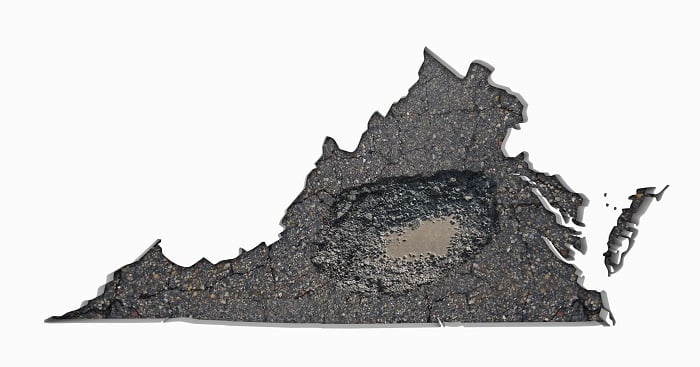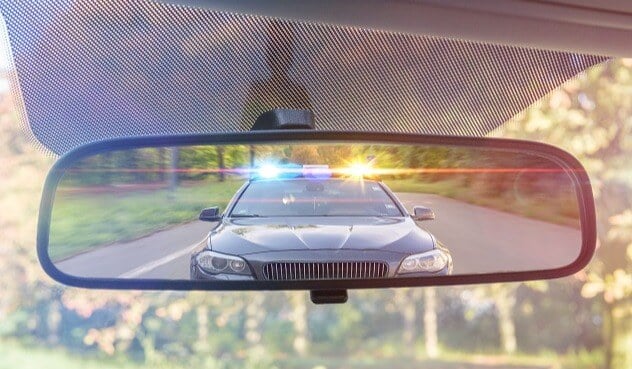
Are we there yet? For many of us, summer is a popular time for vacations and road trips. And a long road trip is the same for your car as it is for your family: it's a marathon. A little planning and some safety checks in preparation can give you peace of mind for avoiding the consequences of problems on the road, like a breakdown or a crash. Let's cover the basics!
Check Your Vehicle
Start by running through your car's regular maintenance items like rotating tires, fluid checks, new spark plugs, new wiper blades, and an oil change. If you can, sync your car's annual Virginia safety inspection in the spring. Then many safety items, like your brakes and headlights, are inspected and addressed just in time for travel season.
In the meantime, here's a solid car checklist you can do for your upcoming trip:
-
Look under the hood and inspect all belts and hoses to make sure there are no signs of bulges, blisters, cracks, or cuts in the rubber. Summer's heat accelerates the rate at which rubber belts and hoses degrade. Replace them if needed and make sure connections are secure.
-
Check your coolant level when your car's cool. If there's a deficit, have a mechanic check the cooling system for leaks, test the coolant, and drain or replace old coolant as needed.
- Check fluid levels for brakes, automatic transmission or clutch, and power steering. Make sure each reservoir is full and if you see any signs of leakage, take your vehicle in to be serviced.
-
Check your A/C to ensure your relief from the heat while traveling is dependable. The most common causes of broken air conditioning are due to compression issues or leaks. If you are feeling cool air but not cold, the issue could be a clogged filter, a problem with the cooling fan, signs of radiator trouble, or it could simply mean it’s time to recharge your AC with freon.
-
Test your battery and make sure it has plenty of life left. Many local auto parts shops will do this for you for free. If you have a little extra time, clean your terminals with a wire brush and add grease.
-
Top off your windshield wiper fluid and check your wiper blades. If they smear fluid or make noise rather than wipe it completely away, it's time to replace them.
-
Have someone help you test your headlights, brake lights, turn signals, emergency flashers, and interior lights. Be sure to also check your trailer brake lights and turn signals, if necessary.
Check Your Tires
You've got a lot riding on your tires when you travel! Did you know underinflation is the leading cause of tire failure?
Here is a checklist for healthy tire travel:
- Check the air pressure in your tires when your tires are cold and look for indications of damage, such as bulges and areas of uneven wear. Even a nail head or other sharp object could be plugging a slow leak and lead to a flat on the road.
- Check your tread. Tire tread should be at least 2/32 of an inch or greater on all tires. Use the penny test to determine when it’s time to replace your tires. Place a penny in the tread with Lincoln's head upside down. Your vehicle needs new tires if you can see the top of Lincoln's head.
- If you haven't recently rotated your tires, rotate and see if your wheels need to be aligned before you travel.
- Add air if needed. Here's how:
- Check each tire’s age. Vehicle manufacturers often recommend replacing tires every six years, regardless of mileage.
- Check the tire pressure in your spare tire. If you have a flat, you'll need a dependable backup!
Check for Recalls
If your car has a serious safety issue, you don't want to find out about that while you're traveling. Instead, use NHTSA's Recalls Look-up Tool to make sure your car is free of recalls or gets the free needed remedy available.
Have an Emergency Roadside Kit
Just in case you always want to have items on hand for an emergency. Don't count on a constant cell signal- you never know when it may not be available.
A complete emergency car kit should have the following:
- First aid kit
- Blanket
- Flares or triangle reflectors
- Jumper cables
- Flashlight with extra batteries
- Extra phone charging cable
- Plenty of water, protein bars, and healthy snacks
- Tire pressure gauge
- Work gloves and a change of clothes
- Basic repair tools and some duct tape
- Map

Travel Safely
Buckle Up. Every trip, every time. Everyone in your vehicle should be buckled up in age- and size-appropriate car seats, booster seats, or seat belts. See NHTSA’s child passenger safety recommendations to find the right seat for your child’s age and size.
Here are a few more safety reminders:
- Remember, all children age 13 and under should always ride correctly buckled in the back seat of the car.
- Remember to always check the back seat before you leave the car.
- Never leave your children or pets unattended in or around a vehicle.
- Never allow passengers to ride with their feet on the dashboard. This is extremely dangerous if you experience a crash and your car's airbag deploys.
- When using a backup camera, look for kids, pets, and objects that may be out of view but still in the path of your vehicle.
- As the size and height of vehicles increase, “blind zone” areas do as well. Large vehicles, trucks, SUVs, RVs, and vans are more likely to be involved in backovers than cars.
- Remember Virginia's Hands-Free Law. Do not text or drive distracted.
- Always drive sober. It is illegal to drive impaired by any substance in all states – no exceptions.
- Obey posted speed limits and never tailgate other drivers.
- Take regular breaks from driving. Long trips should include time to stop to stretch, get something to eat, return calls or text messages, and change drivers or rest if you feel drowsy.
Plan your route
Familiarize yourself with directions and maps before you go, even if you use a GPS. Check the weather, road conditions, and traffic before you go. Allow plenty of time to get to your destination safely and don't rush. Let loved ones know your route and anticipated arrival time.
Roadside Assistance
While traveling in Virginia, the Virginia Department of Transportation has excellent resources. The Virginia 511 Information System provides the latest traffic and road conditions by phone, website, and app.
The VDOT Safety Patrol provides free-of-charge services for interstate trouble, such as tire change assistance, fuel at the nearest gas station, jump starts, phone access, and directions. You also can call a tow truck or roadside assistance on your car insurance policy.
Virginia State Police is active on Twitter: @VSPPIO and Facebook: @VirginiaStatePolice
If you find yourself having trouble on the road, stay safe if you travel alone.
Learn more about car insurance in Virginia
THE NORTHERN NECK INSURANCE INTEGRITY PROMISE — We pledge to provide straight talk and good counsel from our NNINS Virginia insurance experts through our blog. While we hope you find this to be a helpful source of information, it does not replace the guidance of a licensed insurance professional, nor does it modify the terms of your Northern Neck Insurance policy in any way. All insurance products are governed by the terms in the applicable insurance policy.




